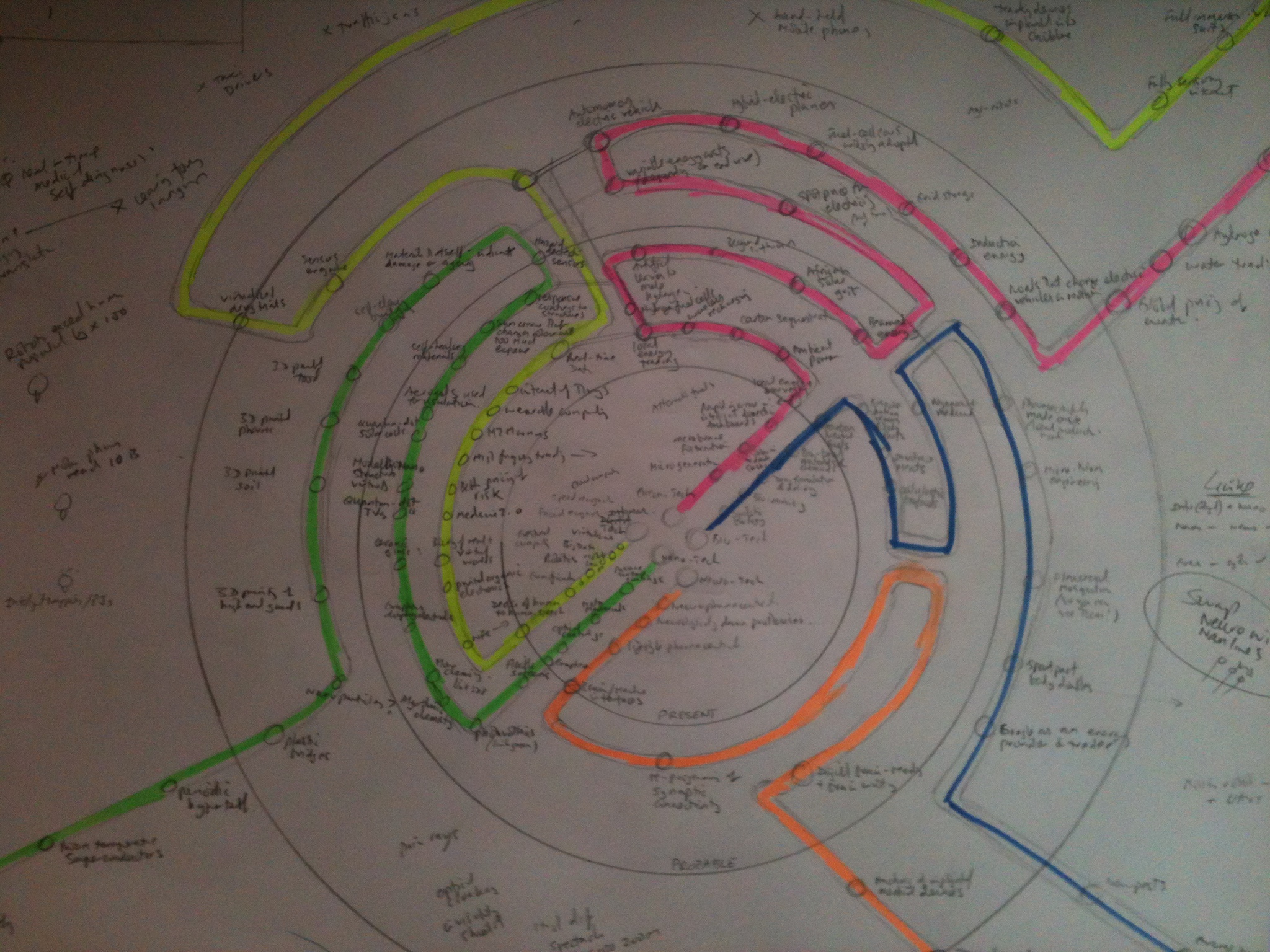I’ve just (almost) completed some scenarios for the future of gaming so I’m back in the office scribbling like a demon. The latest scribble is a map of emerging technologies and it occurs to me that I am never happier than when I’ve got a sharp pencil in my hand and a large sheet of white paper stretching out in front of me.
Thinking of this, there was an excellent piece this time last year (22/29 December 2012) in the New Scientist on the power of doodles. Freud, apparently, thought that doodles were a back door into the psyche (of course he did – a carrot was never a carrot, right). Meanwhile, a study by Capital University suggests that the complexity of a doodle is not correlated in any way with how distracted a person is. Indeed, doodling can support concentration and improve memory and understanding. Phew.
While I’m on the subject of paper by the way, there’s an excellent paper on why the brain prefers paper in Scientific American (issue of November 2013). Here are a few choice quotes:
“Whether they realise it or not, people often approach computers and tablets with a state of mind less conductive to learning than the one they bring to paper.”
“In recent research by Karin James of Indiana University Bloomington, the reading circuits of five-year-old children crackled with activity when they practiced writing letters by hand, but not when they typed letters on a keyboard.”
“Screens sometimes impair comprehension precisely because they distort peoples’ sense of place in a text.”
“Students who had read study material on a screen relied much more on remembering than knowing.”

